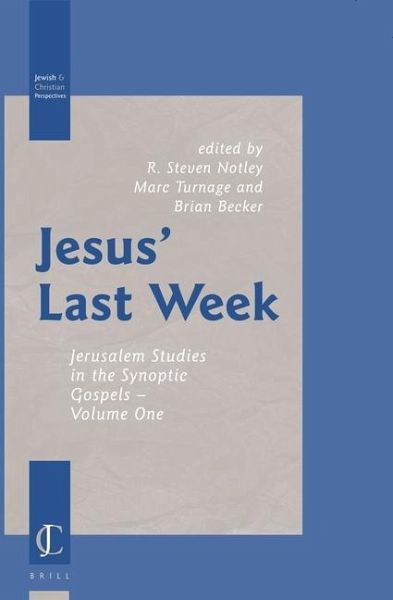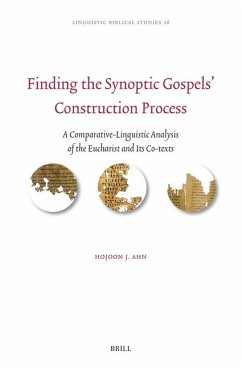
Jesus' Last Week: Jerusalem Studies in the Synoptic Gospels -- Volume One
Versandkostenfrei!
Nicht lieferbar
The result of this research by Christian scholars fluent in Hebrew and living in the land of Israel confirms that Jesus was an organic part of the diverse social and religious landscape of Second Temple-period Judaism. He, like other Jewish sages of his time, used specialized methods to teach foundational Jewish theological concepts. Jesus' teaching was revolutionary in a number of ways, particularly in three areas: his radical interpretation of the biblical commandment of mutual love; his call for a new morality; and his idea of the Kingdom of Heaven.









